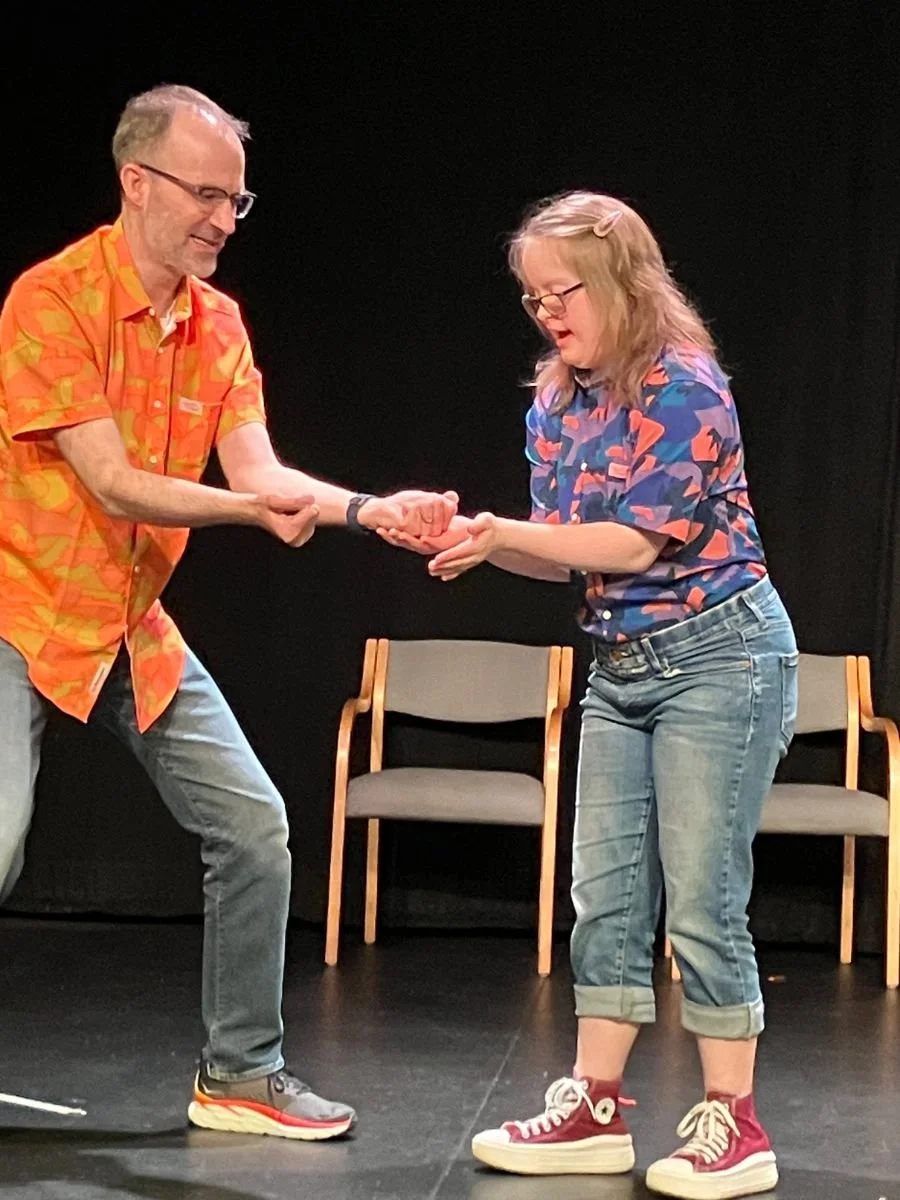Facts & Resources
Zany. Silly. And Seriously Effective.
Improv may look playful — and it is! — but research also shows it’s a powerful teaching tool. Among diverse students, improv strengthens social-emotional learning, which is the foundation of mental wellness.
At the heart of it all is the improv principle “Yes, and…” — embracing ideas, building on them, and sparking deeper creativity and critical thinking.
Here are just a few studies that show the many positive impacts of improv:
-
Reduced anxiety and depression: Research shows that school improv programs can lower social anxiety and boost mood. Improv may also help the brain work better as a whole. These benefits can build emotional strength and foster connection with others.
Stress relief through laughter: The Mayo Clinic says laughing out loud is more than fun. It helps the body relax by calming stress, loosening tight muscles, and improving mood. Over time, laughter can support mental health, help the immune system, and make challenges easier to face. It’s a simple way to add more joy and connection to daily life.
-
Building creativity and confidence: A Science Direct study found that improv can boost creativity and make it easier to handle the unexpected. These benefits can show up after one session. Improv is a fun, supportive way to build flexibility, confidence, and resilience.
Improved mental well-being: One study showed that improv can lift mood, build confidence, and help people think in new ways. This can make it easier to express ideas, share with others, and feel a stronger sense of self-worth.
-
A safe space to embrace uncertainty: A new study found that one 20-minute improv activity using the “Yes, and” approach can help people feel more connected and think in new ways. Improv’s safe, playful style makes it easier to try new things and embrace the unknown.
Here’s a podcast featuring one of the study’s lead researchers, Mary DeMichele.
Grounded in Research. Guided by Experience.
MNprov’s founders built our services on this scientific foundation. Kelly Kautz, a national board-certified special education teacher with more than 20 years of experience, holds degrees in Special and Elementary Education and an MS in Special Education. She also completed the Autism Certificate program at Hamline University.
Michael Bruckmueller, a teaching artist with 25+ years in theatrical improvisation, holds an MFA in Theatre Pedagogy and a BFA in Theatre Performance. He serves as Director of Education at CSz Twin Cities, is an adjunct professor at St. Catherine University, and coaches improv nationally.
Educators agree: applied improv is more than just fun. It’s a catalyst for teaching social skills and problem-solving, addressing all five CASEL competencies — Self-Awareness, Self-Management, Social Awareness, Relationship Skills, and Responsible Decision-Making.
Standing Ovations


